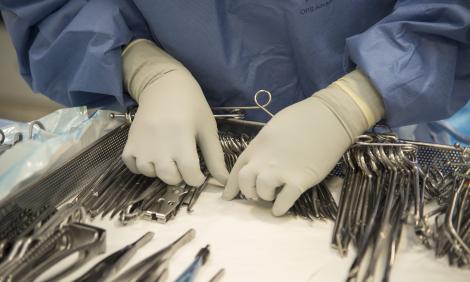Neurosurgeon
Neurosurgeons diagnose, assess and perform surgery on disorders affecting the central nervous system (brain and spinal cord) and the peripheral nervous system which can involve any area of the body.
They treat a wide range of conditions ranging from trauma, tumours, strokes, to infections or degenerative and congenital conditions.
Life as a neurosurgeon
Neurosurgery is a challenging speciality. Our understanding of the brain and central nervous system is changing all the time and you’ll have to keep up to date with the latest developments and research.
You will be based in one of 30 neurological units in the UK. These are usually attached to large teaching hospitals in or near big cities. Your working day will be long with a high level of on-call work. About half your work could involve dealing with emergencies.
Your surgical work can involve anything from straightforward cases to highly complex and long operations. Monitoring patients after surgery is very important as complications can happen, such as blood clots, strokes and comas. You’ll also be looking after your patients’ families before and after and this can be emotionally challenging, especially if things don’t go as planned.
Surgery is your main responsibility, but you’ll also see patients in outpatients’ clinics, on wards and in emergency departments. Your patients can be all ages and may have immediate, life-threatening needs or a chronic debilitating condition.
How much can I earn?
You’ll first earn a salary when you start your foundation training after medical school. Find out details of current salary ranges for foundation and specialty training, SAS doctors and consultants on the 'Pay for doctors' page.
How about the benefits?
- make a difference
- flexible and part-time working
- high income early in your career
- work anywhere in the world
- excellent pension scheme
- good holiday entitlement
- NHS discounts in shops and restaurants
Must-have skills
- excellent communication skills to manage a wide range of relationships with colleagues, and patients and their families
- emotional resilience, a calm temperament and the ability to work well under pressure
- teamwork and the capacity to lead multidisciplinary teams
- problem-solving and diagnostic skills
- outstanding organisational ability and effective decision-making skills
- first-class time and resource management for the benefit of patients
- a high degree of manual dexterity
- superb hand-eye co-ordination, excellent vision, and visuospatial awareness
- physical stamina to cope with the demands of surgery
Entry requirements
Your first step is medical school. Typically, you’ll need excellent GCSEs and three A or A* passes at A level including chemistry for a five-year undergraduate degree in medicine. Many medical schools also ask for biology and others may require maths or physics.
If you already have a degree, you could study for a four-year postgraduate degree in medicine.
You’ll need to pass an interview and admissions test. You’ll be asked to show how you demonstrate the NHS values such as compassion and respect.
Some medical schools look to recruit a mix of students from different backgrounds and geographical areas, so your educational and economic background and family circumstances could be considered as part of your application.
"Neurosurgeons can make a massive difference to patients’ lives. Someone may present with a life-threatening condition and after surgery they return to full health, which is very rewarding. The difference in their life is often immediate."
Read Damiano's story.
What are my chances of starting a career in neurosurgery?
In 2020 there were 220 applications for 26 specialty training places. In May 2021 there were 362 consultant neurosurgeons working in the NHS in England.
How to become a neurosurgeon
After medical school, you’ll join the paid two-year foundation programme where you’ll work in six placements in different settings.
After your foundation programme, you can apply for paid specialty training to become a neurosurgeon, which will take a minimum of eight years.
You can take an academic pathway during training and spend part of the time on research with a view to taking time out of the programme to work towards a PhD.
You may be able to train part time, for example for health reasons or if you have family or caring responsibilities.
Where a career in neurosurgery can take you
You could:
- specialise or conduct research in areas such as paediatric neurosurgery, neuro-oncology (the management of brain and spinal tumours), spinal surgery, and functional neurosurgery (the management of conditions such as epilepsy, movement disorders and cerebral palsy)
- teach medical students or postgraduate students in training
- get involved in research at universities, the NHS or private sector
Sorry, we don’t currently have any vacancies in your area.
You can try expanding your search area or search a different postcode.
-
These organisations have further information about being a neurosurgeon, particularly as your career progresses. Take a look.
Organisations
British Neurosurgical Trainees’ Association
Joint Committee on Intercollegiate Examinations
Neurology and Neurosurgery Interest Group (NANSIG)
Royal College of Physicians and Surgeons of Glasgow
Royal College of Surgeons of Edinburgh
Society of British Neurological Surgeons
And hear from Helen about working as a neurosurgeon.
Helen Fernandez, consultant neurosurgeon (The Foundation Programme)





